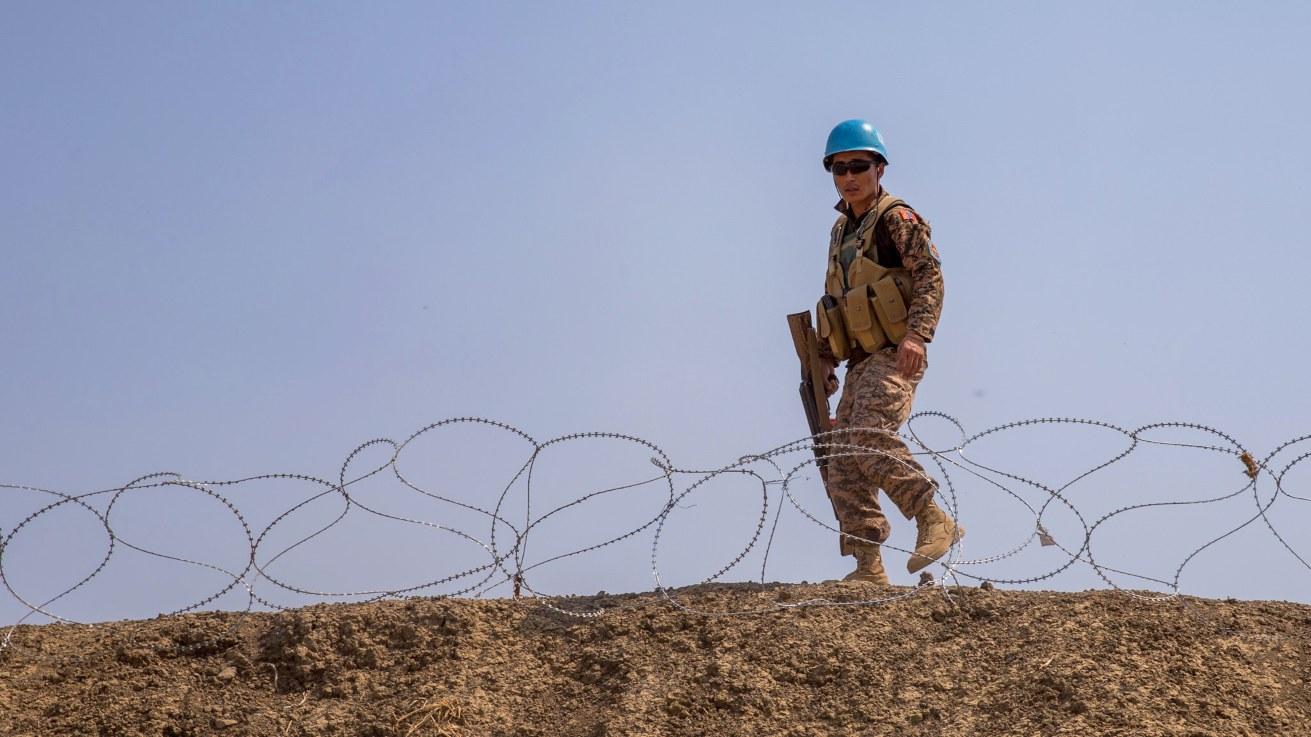After an Ebola epidemic was confirmed in August 2018 in the Democratic Republic of Congo, Uganda acted to prevent its spread within its boundaries. Grace Akello and Duncan Green provide an overview of research into Uganda’s pandemic preparedness and response, highlighting the failings and its implications for addressing COVID-19.
Read the policy report here on Uganda’s 2018 Ebola response from LSE’s Centre for Public Authority and International Development.
After an 11th epidemic of Ebola was confirmed in August 2018 in the Democratic Republic of Congo, Uganda’s Ministry of Health worked with key partners in disease control such as the UK Department for International Development, the US Centres for Disease Controls, UNICEF and the World Health Organisation to design an Ebola response.
Unfortunately, their efforts showed little visible result in terms of a heightened response and activities among high risk communities. For example, at the Ebola Treatment Unit in Bwera, during the response in June 2019, frontline healthcare workers and patients had nothing to eat and no basic equipment. They had to cut down the recommended 21 days for Ebola case management to just 10 days.
What went wrong? An ethnographic study over 12 months explored the issues of preparedness, heightened response and systems strengthening. We lay these out in our recent policy report.
Key findings in our report are:
- Uganda’s response to Ebola was uncoordinated, chaotic and over-bureaucratic, with little tangible benefit on the ground.
- Militarised and sometimes violent responses destroyed public trust in the authorities’ response. The state deployed armed military personnel to enforce compliance. Soldiers’ approach to enforcement was to punish, arrest or beat up all those deemed stubborn – oblivious to how that would affect the desired response to Ebola prevention and treatment rules.
- Donors preferred to pump resources into health messaging, which is easy to measure and report on (numbers of posters, seminars or radio ads). But other vital areas of the response, such as surveillance, diagnostics, case management and psychosocial support were starved of resources.
- Investing resources in tackling one disease is an expensive venture for a setting with numerous health threats.
- Misdiagnosis due to a failure to differentiate between different Ebola strands hampered the response. The most common posters depicted signs of Ebola as vomiting, diarrhea and bleeding from body openings. But these were based on Ebola outbreaks elsewhere. Noticeably, for all severe cases of the Zaire strain for Ebola in Uganda, no bleeding was observed. Death occurred with signs like fever, vomiting, diarrhea and body weakness. This led to widespread misdiagnosis, as surveillance officers were overwhelmed with requests to treat symptoms of bleeding due to motor accidents and epilepsy-related seizures.
- There was a lack of clarity over which ‘travellers’ were genuinely at risk. At one border crossing, the highest proportion of travellers were village women who cross to the DRC through informal paths to farm, buy household items and sell agricultural produce. They can do multiple trips per day and each time were subjected to intrusive screening and surveillance. But to surveil a woman who has merely crossed the border to fetch dirty water from a river for domestic use is a waste of time. The disease surveillance team needed to screen people selectively who come from a distant Ebola-infested area such as Beni.
- Double standards over sanitary safety measures also undermined public trust. communities started resisting Ebola activities when they saw how health promoters, Ebola screeners and surveillance teams exhibited risky behaviours themselves when they had no sanitary facilities.
What are the implications?
Pandemic preparedness and response approaches in Uganda need considerable modification if they are to have a genuine impact. In its current form, a humanitarian approach focuses only on short-term approaches, one disease at a time. Interventions are characterised by the duplication of activities. A mishandled response destroys trust and the social contract between state and people, which is vital to a pandemic response. The mishandling of Ebola makes future pandemic responses, like for COVID-19, much harder.
A systems-strengthening approach is essential to put this right. Uganda’s health sector is heavily reliant on aid donor funds. Policy makers draft and approve health sector strategic plans whose basic focus is on how to tackle common health complaints. Curative and preventive technologies are purchased, though Uganda also receives donations of equipment, pharmaceuticals and vaccines from philanthropists.
But in the era of disease pandemics and epidemics, those ways of tackling this country’s health issues are deficient. Having no health reserve budgets means in the event of a health threat like Ebola, responses can only be couched in reactionary, short-term approaches – whereby outside humanitarian organisations define and guide responses.
Photo: A Red Cross volunteer wearing protective clothing as part of an Ebola response. Credit: IFRC. Licensed under creative commons (CC BY-NC-ND 2.0)





